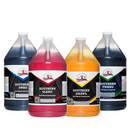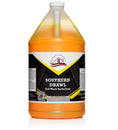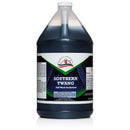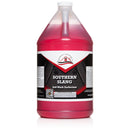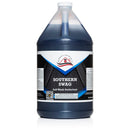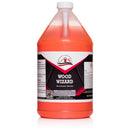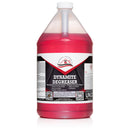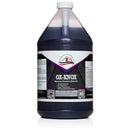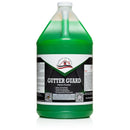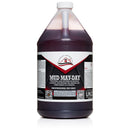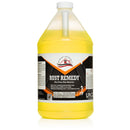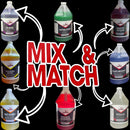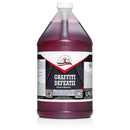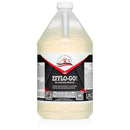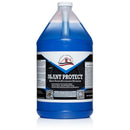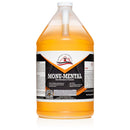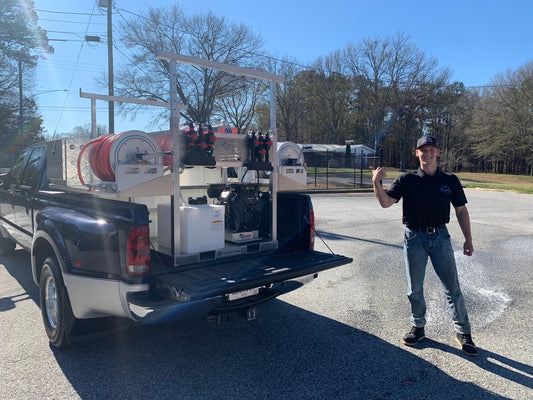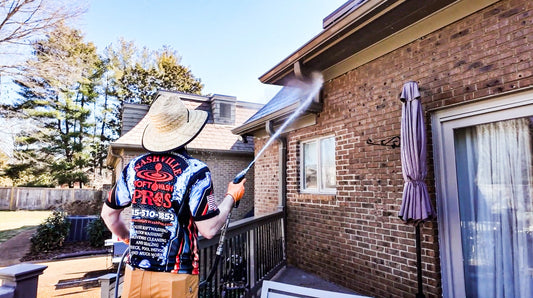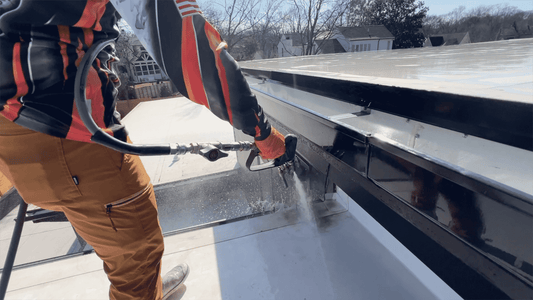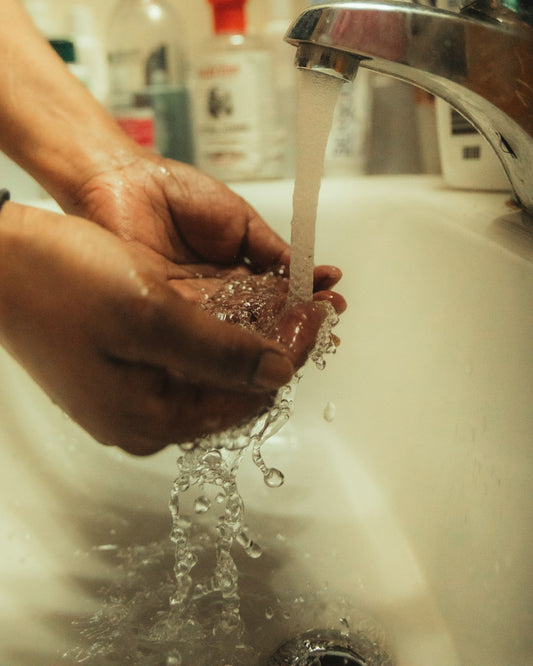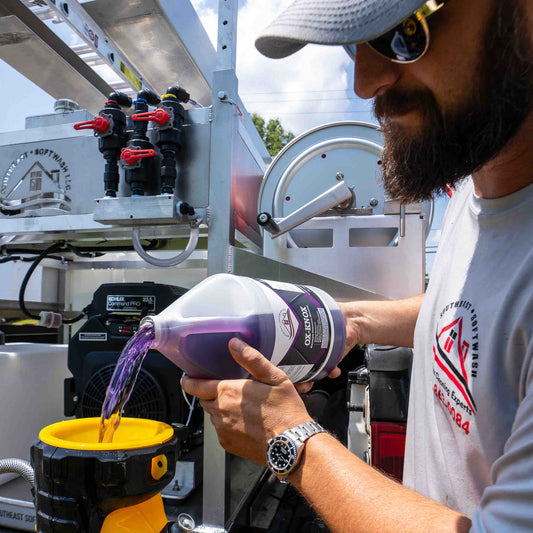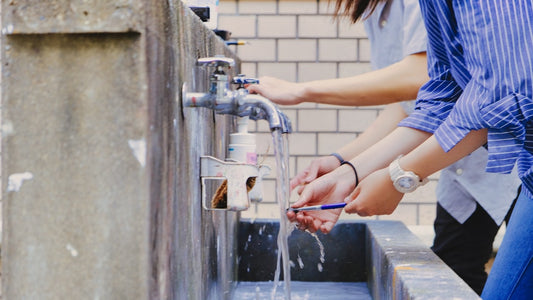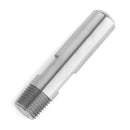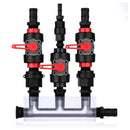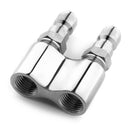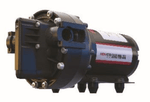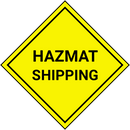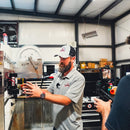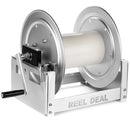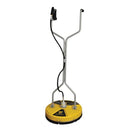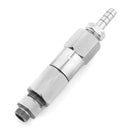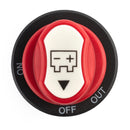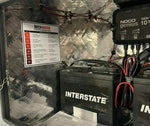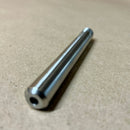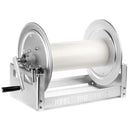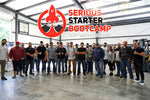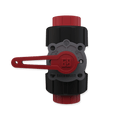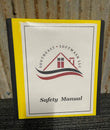Picture this: you're standing in front of a weathered, grimy wall, longing to restore its former glory.
You reach for your soft wash equipment, raring to go, but then it hits you - what's the best chemical mix to tackle this task effectively?
Fear not, my friends, as experts in all things softwash, come with us on a journey to uncover the secrets of the perfect softwash mix in our latest blog.
First, we will hit the short answer so you can find out straight away, ‘What’s The Best Chemical Mix For Softwash?’
The best chemical mix for soft washing typically involves a 1:4 or 1:5 ratio of bleach to water, enhanced with surfactants. Customization depends on surface type, contamination level, type of surfactant used, and environmental concerns.
Ok so with the takeaway nailed, so you can understand a little more easily about what the best chemical mix for softwash is, let's explore some background.
The Art of Soft Wash
Soft washing, the gentle yet potent method of exterior cleaning, has revolutionized the way we restore surfaces.
Unlike its high-pressure counterpart, soft wash relies on a delicate balance of chemicals to dissolve grime, mold, and stains without causing damage.
The beauty of soft washing lies in its ability to rejuvenate surfaces without the risk of surface damage associated with high-pressure washing.
However, this gentle approach presents its challenge - finding the optimal chemical mix.
The perfect soft wash potion must strike a delicate balance between efficacy and safety.
Too strong a mix can damage delicate surfaces, while a weak solution may fail to effectively tackle stubborn stains.
Achieving the right balance requires careful consideration of ingredients, experimentation, and adherence to safety protocols.
But with the right blend, soft washing becomes not just a cleaning method, but an art form that restores surfaces to their former glory with precision and care!
To find out more about soft washing like a pro, head over to SOFT WASHING WITH A PRESSURE WASHER - THE ULTIMATE GUIDE
So what chemicals are in the best softwash mix?
What Chemicals Are Used In Softwash?
Softwash chemicals typically consist of surfactants, biocides, and other additives designed to break down organic matter, kill algae and mold, and prevent regrowth.
Some common ingredients include sodium hypochlorite (bleach), quaternary ammonium compounds (quats), alkyl dimethyl benzyl ammonium chlorides (ADBACs), and specialty surfactants.
The Basic Chemical Mix
A fundamental soft wash chemical mix consists of bleach (sodium hypochlorite) as the primary active ingredient, combined with water and a surfactant to enhance penetration and cleaning power.
This mix effectively kills mold, mildew, and algae while loosening dirt and grime for easy removal.
Customizing the Mix
Depending on the specific cleaning requirements and surface types, the basic chemical mix can be customized.
Do this by adjusting the concentration of bleach, incorporating additional biocides for stubborn stains, or choosing specialized surfactants for improved cleaning performance on different surfaces.
For example, our sodium hypochlorite has a huge 12.5% bleach in the mix, literally the OG for awesome cleaning power.
Ok so let's go through the chemicals in turn and find out a bit more.
Ingredients Matter
To create the ultimate softwash solution, we must first understand the role of each ingredient.
Let's break it down:
Surfactants
Surfactants, often hailed as the unsung heroes of the cleaning world, play a pivotal role in the effectiveness of any softwash solution.
These remarkable molecules possess the unique ability to alter the properties of water, transforming it from a mere liquid into a potent cleansing agent.
By reducing surface tension, surfactants enable water to spread evenly across surfaces, reaching every nook and cranny with ease.
This enhanced wetting action allows for deeper penetration into the pores of the substrate, ensuring a thorough clean.
Surfactants also act as emulsifiers, breaking down oily residues and stubborn grime into smaller droplets that can be easily rinsed away.
Sodium lauryl sulfate and alkyl polyglucosides are particularly prized for their exceptional efficacy in tackling tough stains and dirt buildup.
When selecting a soft wash solution, prioritizing the best surfactants known for their superhero cleaning power is crucial
These magical molecules serve as the backbone of any effective cleaning regimen, ensuring that surfaces are left sparkling clean and rejuvenated.
Aim for a concentration of around 1-2% in the final solution.
This translates to approximately 1-2 ounces of surfactant per gallon of water.
Biocides
In the battle against organic growth, biocides are the undisputed heroes of soft washing.
Mold, mildew, and algae stand no chance against these potent agents, which specialize in annihilating unwanted invaders with precision and efficiency.
Utilizing common biocides like sodium hypochlorite (bleach) or quaternary ammonium compounds, soft washers can effectively combat a huge range of mold issues and make sure that surfaces remain pristine and free from unsightly stains.
Each biocide boasts its unique strengths and applications, allowing for tailored solutions to specific cleaning challenges.
With biocides in the mix, soft washing becomes not just a task, but a triumphant victory over stubborn organic growth.
For effective microbial control, similar to surfactant, a concentration of 1-2% sodium hypochlorite (bleach) or quaternary ammonium compounds is recommended.
This equates to roughly 1-2 ounces per gallon of water.
Alkaline Builders
Alkaline builders are the heavy hitters in the soft washing arsenal, ready to tackle even the most stubborn stains and dirt with relentless efficiency.
Sodium hydroxide or potassium hydroxide stands as stalwart champions, wielding their power to break down grease, oil, and mineral deposits with precision!
From grimy driveways to weather-beaten roofs, these alkaline builders penetrate deep, ensuring thorough cleaning and restoring surfaces to their pristine state.
With their unwavering strength, they prove indispensable in the battle against grime, showcasing the true power of soft washing in transforming even the toughest surfaces.
Typically, it's recommended to use around 1-2 ounces of alkaline per gallon of water, depending on the specific cleaning requirements and surface types.
What Does the Industry Say?
According to the Asphalt Roof Manufacturing Association (ARMA), the most effective method of cleaning algae and moss from a roof is with a 50/50 (i.e., 1:1) mix of laundry-strength liquid chlorine bleach and water.
So within the siftwash industry, it's a hot topic, pun intended!
Some swear by it, going full throttle with a bleach-to-water ratio that could make your roof sizzle.
But hold up, we're waving the caution flag here. Here's why:
- It's too spicy: Picture this: ARMA recommends a 50:50 mix, but that's for gentle laundry bleach, like a light seasoning. Commercial-grade stuff? It's double the kick, like pouring hot sauce straight from the bottle.
- Not always cleaner: More bleach doesn't equal a cleaner roof. Sometimes, a 3% mix does the trick just fine, especially if you are using a top-quality surfactant such as our monumental Fresh Rain ‘Southern Swag’ Surfactant (Thank us later!)
- Bleach bucks: Think about your wallet. Pumping up that bleach mix to 50/50 means you're pouring money down the drain. Imagine the cost: extra bleach for every batch adds up quicker than you can say "clean roof."
- Plant peril: Your garden won't thank you for drowning it in super-concentrated bleach. Kill off your plants, and you're either forking out cash for replacements or diving into the paperwork for an insurance claim. Neither is fun.
So, before you turn up the heat on your roof, think twice. Maybe even spot clean or give it a double dose instead. Your roof—and your wallet—will thank you later.
A Good Rule Of Thumb
As a general rule for soft washing a roof for instance, the ratios of chemicals typically involve a mix of bleach and water, often in the range of 1 part bleach to 4 or 5 parts water.
This translates to a 1:4 or 1:5 ratio. However, it's essential to customize this ratio based on several factors:
- Roof Material: Different roofing materials may require different strengths of cleaning solutions. For example, asphalt shingles might tolerate a stronger bleach solution than delicate cedar shakes.
- Degree of Contamination: The level of algae, moss, or other contaminants on the roof will influence the strength of the solution needed. Heavily contaminated roofs may require a stronger mix, while lightly soiled ones may be effectively cleaned with a milder solution.
- Environmental Concerns: Consider the impact of runoff on surrounding vegetation and the environment. Adjust the bleach concentration to minimize harm to plants and ecosystems.
- Local Regulations: Be aware of any local regulations regarding the use of cleaning chemicals and their concentrations. Ensure compliance with safety and environmental standards.
Mixing Surfactant for Softwash
Our superhero surfactant Citrus ‘Southern Drawl’ is a powerful bleach additive designed to elevate your soft wash cleaning experience!
Perfect for a wide range of softwash applications, including roof cleaning, house washing, concrete treatment, and more.
This concentrated formula boasts a mix ratio of 15 gallons of water to 1-gallon jug, ensuring potent cleaning performance with every use.
For users with blend manifolds, simply follow the instructions on the jug for initial mixing, then fine-tune with your blend manifold as needed.
For those preferring batch mixing, we recommend a general mixing formula of 1-2 ounces per gallon of Sodium Hypochlorite (S.H.), guaranteeing optimal results without hassle.
Read more in THE ULTIMATE GUIDE TO DIY SOFT WASHING: MIXES, METHODS, AND MASTERY
What’s The Best Chemical Mix For Softwash? -The Wrap
In your quest for the perfect soft wash mix, don’t forget to head over to our store for our full range of top-quality chemicals.
Our expertly crafted blends ensure effective cleaning for every softwash job for both pros and DIY’ers!





